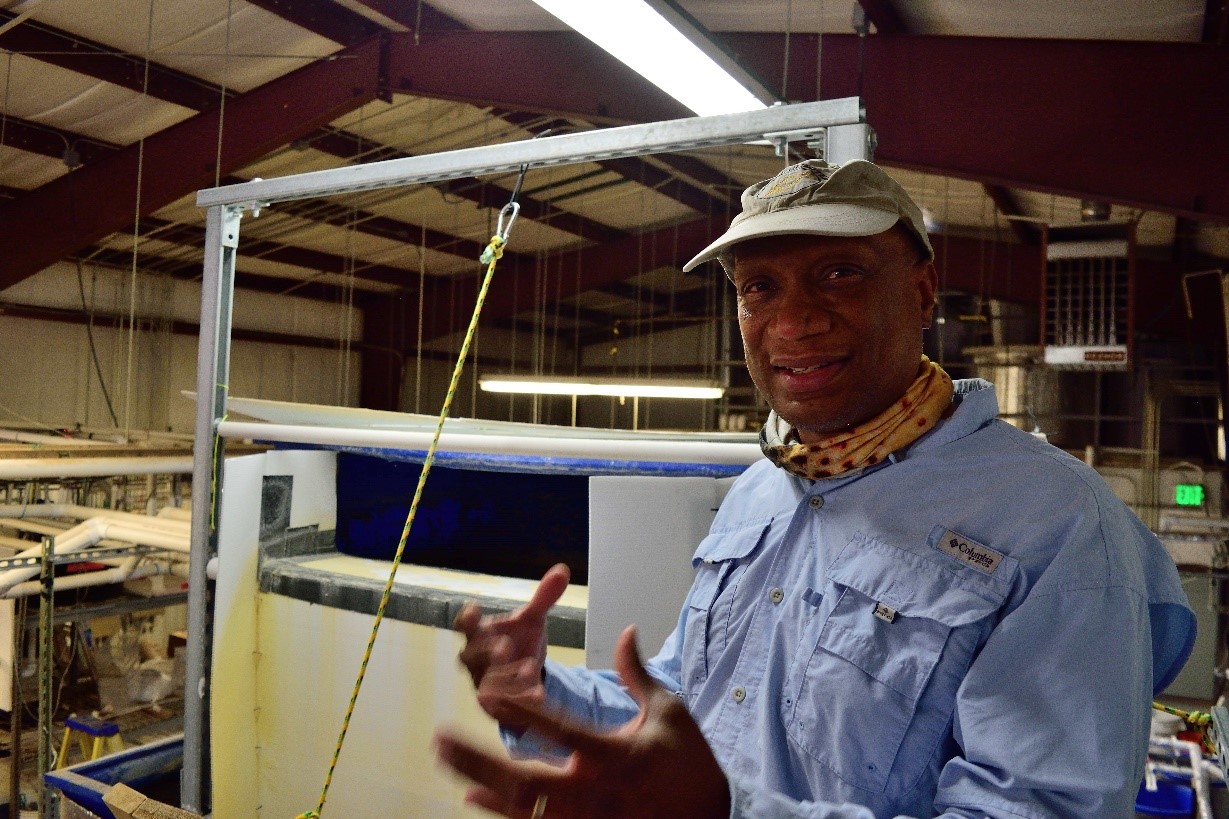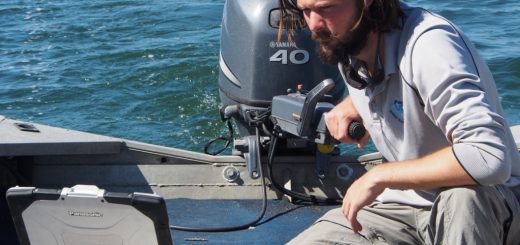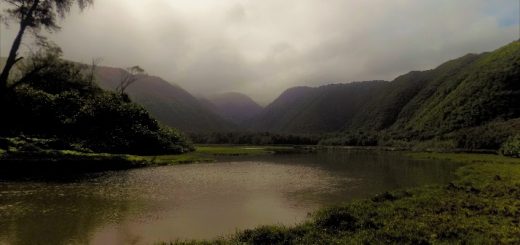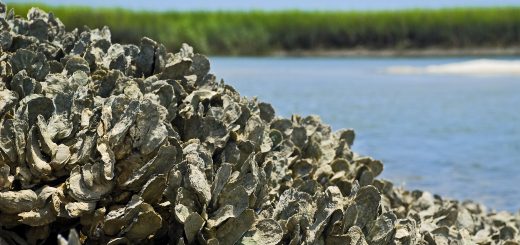A Different Kind of Barrier: Interview with Chris Myrick
In summer of 2020, the Black Lives Matter (BLM) movement and associated protests have shed light on racial inequities that permeate American Society. It would be a mistake to assume that these events are disconnected from fish and the habitats in which they live; furthermore, racial inequality can be found even in our institutions such as academic laboratories and agency representation. As AFS “…strives for the advancement of equity and inclusion in the fisheries profession and beyond”, I would like to share an interview with Dr. Chris Myrick of Colorado State University, where he reflects upon his research regarding fish movement and physiology, and on his experience as a minority in our field. My discussion with Dr. Myrick was a good reminder of the different paths that minorities take to outdoor careers. As he says within the interview, it’s crucial that we “understand that they [minorities] may have to surmount or climb over barriers that you never experienced.”
——————————————————————————————————————–
Bradley: “Can you give us a summary of your work and research at CSU?”
Chris: “I would call myself a physiological ecologist, but I work on almost anything that is interesting. The majority of the work in my lab right now falls under fish passage and fish barrier design, as well as aquaculture… It’s all applied: I run an applied lab, I came out of an applied lab at UC Davis – and I like projects that solve problems on the ground.”
Bradley: “Real-world implications.”
Chris: “Yes, and nothing makes me happier than seeing where the results of a project get taken and used to change the way we do something. Eventually I try to get them published – I should probably try sooner and faster – but being able to walk out to a river and see a fish passage structure that was designed using some of our research – that makes my day.”
Bradley: “That’s related to something else that I was going to ask you. As a scientist, you specialize in physiology, but there are definitely some implications – I think – for fish habitat and management. What kind of implications do you see there?”
Chris: “For me, physiology is the toolbox that I use to approach fish management problems. I just happened to come out of a fish physiology lab at UC Davis, so I always think of things from a physiology standpoint. But, say that you’re looking at fish passage, and you’re looking at how fish are getting past some sort of fish barrier in a stream. Knowing how fast fish can swim doesn’t help you get the fish upstream, until you modify the habitat. So, if you’re a physiological ecologist, I don’t think that you can actually pull yourself away from the habitat side or the management side if you really want to have an impact.”
Bradley: “I have found that it’s difficult for me to get excited about some very cutting-edge research if I can’t see the real-world application for it.”
Chris: “I guess you could say that I’m sort of a ‘simple’ fish physiologist. We instrument fish sometimes, but we really like to do aquatic work, either in the lab or in the field. We like to solve problems. Sometimes we succeed, sometimes we don’t, but that’s the science part.”

Bradley: “Some readers may not realize that you are a Black-American biologist. This is relatively unusual; according to a 2016 study by Oregon State University (Arismendi and Penaluna 2016), only 10% of all fishery science manager and faculty positions were occupied by minorities in 2010, despite minority groups being 36% of the US population.
Furthermore, on June 3 2020, AFS issued a public statement that called for greater racial inclusion in the fisheries profession. Given the statement’s clear directives, it is a goal of AFS to increase racial equity in every section. It is also clear that much work remains for the accomplishment of that goal.
You have become a well-known and respected biologist that is also a member of a minority group. As an organization and as individuals, what do you think are actions that AFS can continue or begin taking to promote the inclusion and growth of minorities in fisheries?”
Chris: “My experiences are definitely not those of a typical black American. Because my dad was a US diplomat working for the State Department, I actually did not grow up in the US. I had the privilege of growing up elsewhere, and really didn’t live in the United States until I started college, and I was essentially a black American who had not lived a typical black experience in the US.
My Ph.D. advisor was Joe Cech, possibly the most famous fish physiologist in the world – and I never got the sense that I was treated any differently than any of the other students. If I needed someone to carry buckets of water, Joe would carry buckets of water. I guess you would say that it’s being treated as an equal.
As a faculty member recruiting students, I look at people first as potential colleagues – I want to see if they will fit into the lab, regardless of who they are or what their background is. Coming from a particular background is not the sole factor that gets you considered – it can help, but it is not the sole factor. Still, one challenge faced by those of us who are looking to boost diversity in our profession is that the pool of candidates from all backgrounds can be small.
At the same time, many people just don’t even realize that our field exists. If you go into a school and ask kids what they want to do, they might list off a firefighter, or doctor, or banker. It’s going to be really rare to hear a kid say “Fish biologist. Wildlife biologist. Conservation biologist.” So one thing that we all need to do is to go into these communities and tell them: this is what you can do. There are actually jobs in that area.
A big thing for our profession to do is to realize that there is a large part of the American community that does not know that we exist, and that if we don’t take the time and effort to make ourselves known to them, then they will never know that we exist. Once they know that we exist, then we can start to connect with them. If you look at minority communities, in many cases they do have connections to the outdoors. Making sure that those connections persist is very important.
When you see someone from an underrepresented group, it’s important to realize that their path to get to that stage is probably not the same as yours. I can definitely say that’s true for me – I started as an undergraduate at UC Berkeley with a pure Australian accent! Just understand that their experiences are probably going to be different, and not discounting them because of who they are or where they came from – that is critical.
I was at UC Berkeley, a world class institution, and I had no idea there was such a thing as fisheries management – and I was a fish nerd! Just walked down a hallway and saw a light that was on, talked to a fisheries management professor, changed my major 20 minutes later, and have never looked back.. Don’t be afraid to go and talk to people that don’t look like you, or don’t come from your same background. But do understand that they may have to surmount or climb over barriers that you never experienced.”
AFS would like to thank Dr. Myrick for speaking with us. To view his “big flume” replicating streams in action, visit:
A stonecat ascends the flume: https://www.youtube.com/watch?v=td42vGdYaZU&feature=youtu.be
Construction and operation of the flume: https://www.youtube.com/watch?v=0w_fA7vf290&feature=youtu.be
References
Arismendi I, Penaluna BE. 2016. Examining Diversity Inequities in Fisheries Science: A Call to Action. BioScience. 66(7):584–591. doi:10.1093/biosci/biw041.
This conversation has been edited for brevity. Opinions expressed are those of the author & guest, and do not necessarily represent the views of American Fisheries Society or Colorado State University. Photographs are property of the author and may not be used or distributed without permission.



